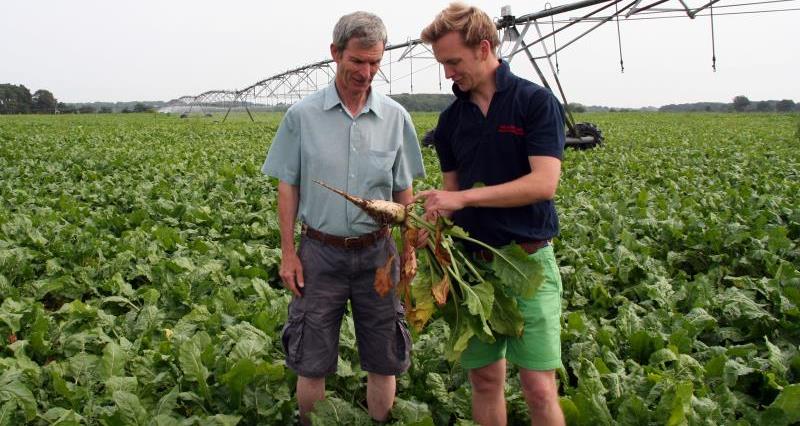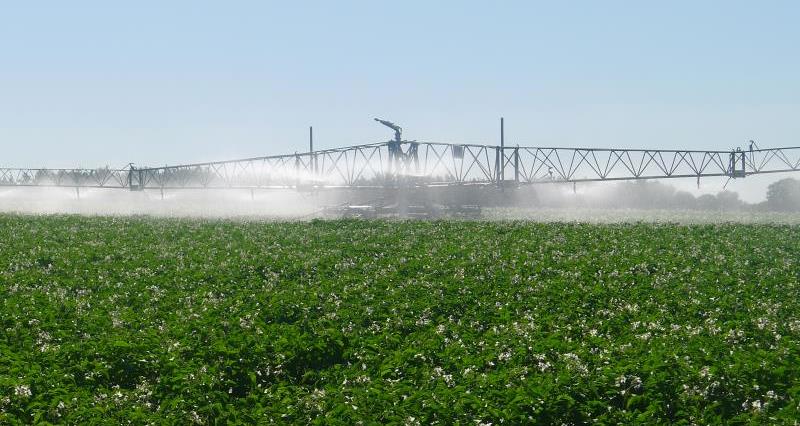After April brought another month of below average rainfall, the Environment Agency is warning that there may be some restrictions on surface water abstraction during the current growing season, with controls on groundwater abstraction possible as well.
Any restrictions will bring short-term challenges for farmers and growers in the months ahead – but what about the longer-term challenge, ensuring there will be enough water for agriculture and horticulture in 20 or 30 years’ time, alongside the pressures of population growth and the impact of climate change?
That is the focus of a new collaborative initiative called Water Resources East (WRE), which aims to secure sale, reliable water supplies that will allow all sectors, including agriculture and horticulture, to reach their full potential.
The NFU is one of the key stakeholders in the project, along with organisations including Anglian Water, British Sugar, UEA, developers, local authorities and environmental groups.
The aim is to develop a long-term regional water resources strategy that will deliver better economic outcomes for the region at lower environmental cost.
NFU national water resources specialist Paul Hammett represents the farming sector on WRE’s Technical Steering Group.
“The 2010 to 2012 drought was a wake-up call on many levels, not least in the way that all the different sectors were trying to solve their own problems as the situation worsened. We learned then that opportunities for joining up are, at the very least, worth investigating” he said.
“We have witnessed a major farm reservoir building programme over the past 25 years and more storage seems one obvious solution in view of the vast quantity of fresh water that runs out to sea every year.
“However, part of the challenge is to work out what type of storage best fits this area, and who will pay for it.
“Do we need a network of large reservoirs for all to share, or a network of smaller, local reservoirs, or something else entirely?
“WRE is about building up the evidence base on which these decisions can be taken, and understanding the rules on who has access to the water, particularly at those times when there is not enough to go around.”
Norfolk farmer and Association of Drainage Authorities chairman Henry Cator also chairs WRE. At the UK Irrigation Association spring conference in Peterborough in March he set out the challenges ahead and the benefits of collaborating to meet them.
The farmer’s view: Tim Jolly, Roudham, Norfolk

Third generation farmer Tim Jolly grows 850 acres of arable crops on the light sandy soils of the Brecks in Norfolk. Crops include asparagus, potatoes, onions, carrots, parsnips and sugar beet, as well as cereals.
“Irrigated water is crucial to our business. Quite simply we cannot grow high value crops such as potatoes and onions without it. We have an extensive network of underground pipes across the farm so we can irrigate crops in any field and achieve the quality and quantity our customers demand,” he said.
“WRE is a long-term project but it’s one with which we undoubtedly have to be involved, understanding it and discussing possible solutions. Agriculture simply cannot afford not to be there.
“There are some huge challenges coming up, including climate change and all the unknown factors there are around that. We have to prepare for the future as best we can, working with others to explore all the options."
Mr Cator explained that the East of England is forecast to have the highest population growth within the UK over the coming years but is also the driest region in the country.
“If you also take into account the East is the leading food-producing region in the UK, around a third of its landmass is below sea level and it has over 500 sites of special scientific interest for biodiversity and wildlife you can start to see the complexity and scale of the impacts on the region. If left unchecked, the impacts are vast and severe,” he said.
“Traditionally, water companies have been solely responsible for water resources planning in their areas.
“They have a duty to compile evidence and talk with their customers to develop a plan that meets public supply demands, is affordable to customers and balances the needs of the environment and communities.
“But it’s becoming increasingly clear that a single company doesn’t have all the answers to the region’s challenges.
“We can’t ‘fix’ the global problems that are impacting on the area, or change the characteristics of the region. But there is a lot we can do, by working together."
